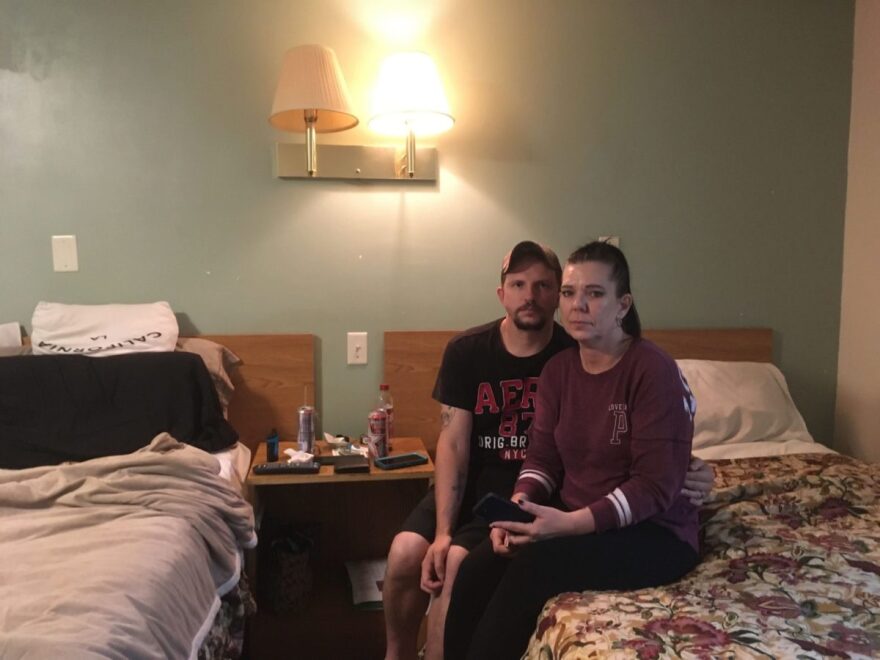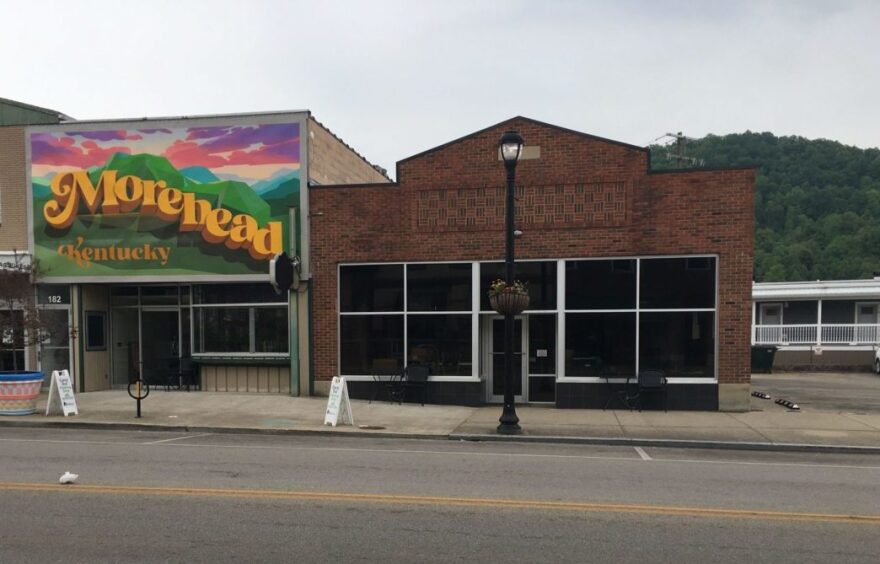Some residents in Ohio Valley communities are still struggling to keep their heads above water over a year into the pandemic. A main cause of concern: housing.
The federal eviction moratorium ended in late August after the U.S. Supreme Court ruled against the Biden administration efforts to extend the moratorium into October. While it lasted, the moratorium preventing eviction for non-payment of rent was the last saving grace for many families. With that protection no longer available, the housing crisis in the region has only gotten more severe.
Alana Watson of WKU Public Radio sat down with Ohio Valley ReSource reporters Katie Myers and Liam Niemeyer to break down their most recent report on the issue.
This interview has been edited for brevity and clarity.
ALANA: How has [the federal eviction moratorium ending] impacted people on the ground?
KATIE: I connected with a couple in Richmond, Kentucky — Melanie and Cody Poore — who are clients of AppalRED Legal Aid. Melanie and Cody lived a pretty average working class, paycheck-to-paycheck sort of life until COVID-19 knocked their lives off balance.
Their kids had to quarantine after an exposure and then when they came out of quarantine, Cody’s landscaping job had to close down due to a COVID-19 exposure. And then when he tried to find another job, they also had to shut down and that just resulted in about a month and a half of lost pay for Cody who was the breadwinner of the family because Melanie has a lung disease. They were evicted due to non-payment of rent shortly after the eviction moratorium was struck down.
The biggest impression I got from talking to them was just how blindsided they were by it all. Cody told me he even used to look down on people who had been homeless, who had sort of fallen on these hard times because surely there must be something they could have done. Surely they could have gotten a job or cut down on their spending somehow. But this experience sort of opened his eyes.

ALANA: Katie, that makes sense. Liam, turning to you: how does the pandemic affect folks going through eviction?
LIAM: Katie and I actually talked to a few people about this topic, and one of the things that we kind of narrowed in on is that, obviously, all this is happening during a pandemic. And so we want to know a little bit more about the health impacts of eviction, you know, not only before the pandemic, but obviously, during this pandemic, which has killed hundreds of thousands of people across the country.
We spoke with Dr. Megan Hatch of Cleveland State University, who, along with other colleagues, has focused on the health impacts of eviction. Some of her previous work has found that among those people who have been evicted, going back to the Great Recession, they’ve reported higher rates of depression and anxiety, even seven or eight years later, after an eviction. And that those mental health impacts can also impact children, families who are being evicted.
There was also an interesting study that looked at before the federal CDC eviction moratorium was in place. States during 2020 had their own statewide moratoriums, and the study that was conducted by various public health and legal experts found that the states that lifted those statewide moratoriums back in 2020 — over the course of several months — had hundreds of thousands of more cases, and many more deaths than those that didn’t lift the moratorium.
Someone else that we spoke to — another legal aid attorney in southeastern Ohio, Kristen Lewis — also mentioned some interesting things: the fact that the eviction court hearings only capture a partial snapshot of those who are facing the threat of eviction. A lot of times that Kristen Lewis explained, people often will leave their homes if they’re being threatened with eviction, because having an eviction on someone’s record makes it harder to find housing in the future.

ALANA: It’s pretty evident that people still need help, based off of you all’s reporting. What resources still exist for renters who can’t pay, and how binding are those rules?
KATIE: Rental assistance is still available. Most of the other pandemic protections have been revoked, like higher unemployment pay and so on. But there is still rental assistance, and you can apply for that within your state. So, within Kentucky for instance, the Kentucky Housing Corporation is distributing this through the Kentucky Healthy at Home Eviction Relief Fund. Housing advocates say that there is going to be rental assistance likely available through 2024, 2025. In fact, some housing advocates are saying that there is enough rental assistance currently available that no one should have to be evicted right now for non-payment of rent.
However, landlords do have the option not to accept the rent, and many of them are. And I have to say I’m not giving legal advice here. This is just what I’ve been told by Kentucky Housing Corporation, but you can take the money elsewhere. Legal aid organizations can help with the application process for people who are eligible for that assistance.
ALANA: So what does this all mean for places like Appalachia? How does this intersect with other ongoing issues like climate change?
KATIE: This is all mapping on to a geography of sparse, affordable housing availability throughout the region. Kentucky, according to the National Low Income Housing Coalition, is short about 77,000 rental homes compared to the need. Ohio is short about 252,000. And that crunch has increased in recent months.
We did some reporting earlier in the year on a town called Morehead where that contrast was really stark. There was a mass eviction in Morehead from a trailer park there. And we had a sense from the residents of the trailer park that the economic progress of Morehead, which had been much touted by the city officials, was just leaving residents behind. They were being evicted for retail development that the city was very proud of and excited about. You have a city beautification and investments happening in Morehead, but not necessarily a lot of high-paying jobs and housing.

Climate change also impacts housing availability in eastern Kentucky. As we’ve seen during some past reporting on our spring flooding events, we saw trailers and other homes in the floodplain being swept away or being damaged to the point where they’re not habitable anymore. And we saw families, five or six months down the line, still staying with family or being forced to move out of county or otherwise relocate. Not all of these people were renters. Many of them own their homes. But I think it’s important to note that in eastern Kentucky, and anywhere, owning your own home doesn’t necessarily make you safe from housing issues, especially if you live in a floodplain. Flooding also presents challenges in terms of just building new homes. Eastern Kentucky is rugged terrain. The cost of building in eastern Kentucky is high. There is not a lot of available land to build on throughout our region. We’re seeing climate change, just put even more of a squeeze on housing.












